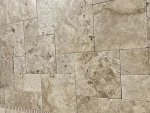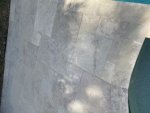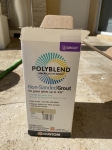- Aug 22, 2017
- 3,004
- Pool Size
- 15000
- Surface
- Plaster
- Chlorine
- Salt Water Generator
- SWG Type
- Hayward Aqua Rite (T-15)
Well, I finally hit the limit. Done with “wet and forget” and done with Roundup (probably have a bunch of health issues having to spray that stuff almost weekly).
I have the pressure washing guy coming on Monday to completely clean the deck. Then my floor guy is coming on Friday and has suggested that he grouts the whole deck instead of polymeric sand. He says some of my joints are way to tight for the polymeric sand and the grout will last longer.
If we have to pull up the pavers for anything we can always break the grout. Besides the grout will also fill in the big holes that I have in the pavers.
Ok, tell me why I am doing a bad thing, or make me feel really good about this.
These guys did a great job on the interior of my house wet grinding the travertine and filling in big holes with matching grout, so I trust them.
I have the pressure washing guy coming on Monday to completely clean the deck. Then my floor guy is coming on Friday and has suggested that he grouts the whole deck instead of polymeric sand. He says some of my joints are way to tight for the polymeric sand and the grout will last longer.
If we have to pull up the pavers for anything we can always break the grout. Besides the grout will also fill in the big holes that I have in the pavers.
Ok, tell me why I am doing a bad thing, or make me feel really good about this.
These guys did a great job on the interior of my house wet grinding the travertine and filling in big holes with matching grout, so I trust them.




